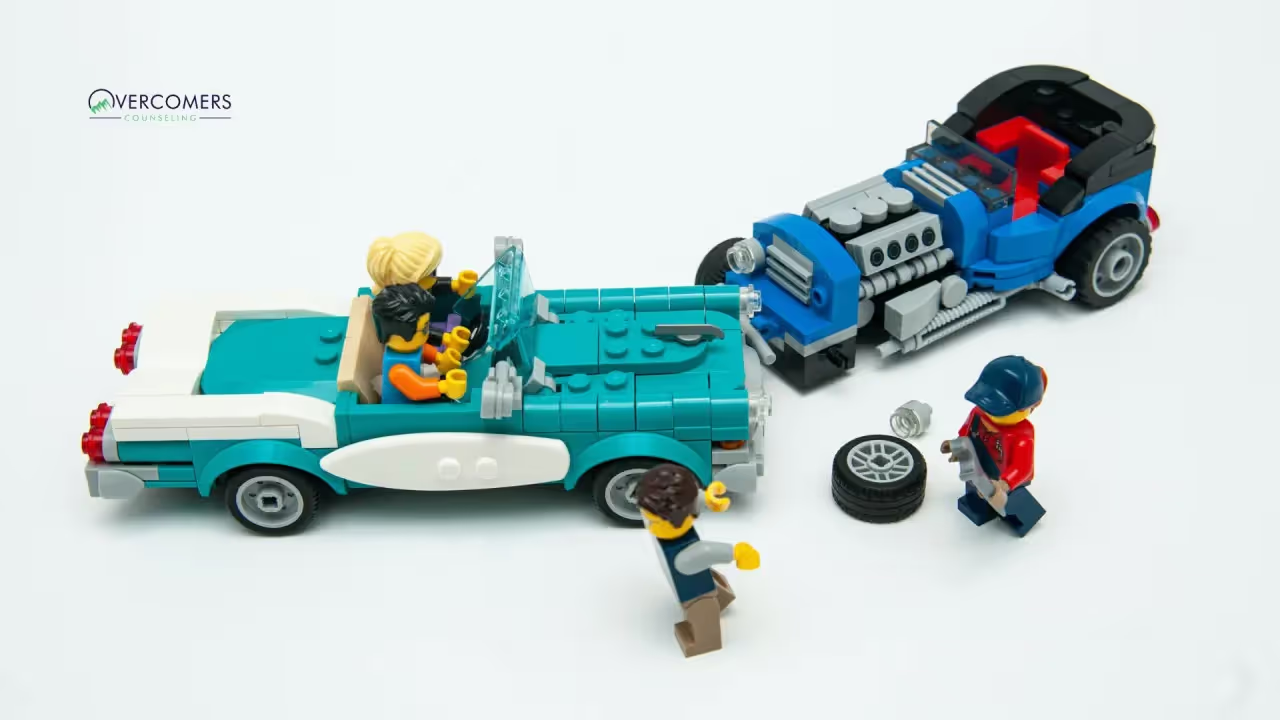Experiencing a car accident can be a traumatic event that leaves both physical and emotional scars. It's not uncommon for survivors to grapple with the...

Experiencing a car accident can be a traumatic event that leaves both physical and emotional scars. It's not uncommon for survivors to grapple with the after-effects long after the physical injuries have healed. From sudden panic attacks at the thought of getting behind the wheel again, to sleepless nights replaying the event, the trauma can seep into every aspect of life. This blog post aims to guide you through understanding and overcoming the trauma resulting from a car accident. We will delve into what trauma is, how it specifically relates to car accidents, its impact on your daily life and relationships, and finally, ways to heal and cope. Remember, recovery is a journey that takes time, patience, and self-care, but with the right tools and support, you can regain control and move forward.
Trauma, in the context of mental health, is a psychological response to an event or an experience that is deeply distressing or disturbing. Car accidents, being shockingly sudden and potentially life-threatening occurrences, often lead to trauma. The emotional and physical reactions to such an event can vary greatly depending on the individual and the severity of the accident, but they commonly include feelings of fear, uneasiness, guilt, and anger. Physical symptoms may also manifest, such as chronic fatigue, loss of appetite, or even ongoing physical disability.Post-Traumatic Stress Disorder (PTSD) is a specific type of mental health disorder that can develop after experiencing or witnessing a traumatic event such as a car accident. Those who have been involved in a serious car accident are at risk of suffering from PTSD. Symptoms of PTSD from a car accident can include recurring memories or nightmares of the event, emotional numbness, avoidance of places or things that remind one of the events, and heightened reactions to stimuli. The presence of PTSD symptoms can be linked to ongoing physical disability and a lack of pain management, further emphasizing the profound impact of trauma on both mental and physical health.

Trauma can have a profound impact on an individual's daily life, relationships, and mental health. It can lead to chronic anxiety, depression, or post-traumatic stress disorder (PTSD), which can cause difficulties in concentration, disrupt sleep patterns, and trigger intense and distressing memories. These symptoms can make day-to-day tasks challenging, leading to decreased productivity at work or school. In terms of relationships, trauma can lead to trust issues, emotional detachment, or fear of intimacy, making it difficult for individuals to form and maintain healthy connections with others. Furthermore, unresolved trauma can skew a person's perception of the world, making it seem like a dangerous place, which can lead to feelings of isolation, helplessness, and a persistent state of fear or unease.
Therapeutic interventions like cognitive-behavioral therapy (CBT) and eye movement desensitization and reprocessing (EMDR) are often employed by professionals to help individuals cope with and overcome the psychological impact of such traumatic experiences.Cognitive-behavioral therapy focuses on altering negative thought patterns, while EMDR uses eye movements to help the brain process traumatic memories. In addition to these therapeutic interventions, self-help strategies such as mindfulness, journaling, and physical exercise can also play a significant role in an individual's healing journey. These activities can help manage stress, improve mood, and boost overall mental health. Moreover, having a strong support system consisting of family, friends, or even support groups can provide emotional assistance and encouragement, which is invaluable during the healing process.

Recognizing when to seek help from a mental health professional is crucial in managing and overcoming trauma related to car accidents. While everyone's experience and coping mechanisms are unique, common signs that professional help may be needed include persistent feelings of distress, difficulty carrying out daily activities, continued nightmares or flashbacks of the accident, and emotional numbness. If these symptoms persist for more than a few weeks, it could indicate a more serious condition like post-traumatic stress disorder (PTSD), which requires professional treatment.Several types of professionals can provide this help, including therapists, psychologists, and psychiatrists. Therapists can guide you through various forms of talk therapy, teaching coping strategies and ways to change thinking patterns.Psychologists can provide similar services, with some also qualified to administer psychological testing. Psychiatrists are medical doctors who can diagnose and treat mental health disorders, and they can prescribe medication if needed.Choosing the right professional depends largely on your circumstances and the severity of your symptoms.
Managing symptoms and coping with trauma after a car accident can be challenging, but several practical strategies can aid in the healing process. First, it's important to establish a routine that includes regular sleep, healthy eating, and physical activity, as these can help regulate your body's natural stress responses. Practicing mindfulness techniques such as deep breathing, meditation, or yoga can also be beneficial for calming the mind and reducing anxiety. Engaging in activities that you enjoy can bring a sense of normalcy and pleasure back into your life. Journaling about your feelings and experiences can provide an outlet for expressing emotions and clarifying thoughts.As for lifestyle changes, consider limiting your exposure to media content that could potentially trigger memories of the accident.Reach out to your support network often, whether it's family, friends, or a support group – relationships are key to recovery. If you find yourself avoiding driving or being a passenger in a car, gradually expose yourself to these scenarios with the help of a trusted friend or therapist. Remember, it's okay to seek professional help if the trauma feels too overwhelming to handle on your own. Lastly, be patient with yourself. Healing from trauma is a journey that takes time, so it's important to celebrate small victories along the way.
In conclusion, the trauma resulting from car accidents can have significant emotional and physical impacts, disrupting daily life and relationships while potentially leading to mental health disorders like PTSD. However, it's crucial to remember that there are numerous healing methods available. Therapeutic interventions such as cognitive-behavioral therapy and eye movement desensitization and reprocessing can be highly effective in managing and overcoming the psychological aftermath of a traumatic event. Furthermore, self-help strategies like mindfulness, journaling, and physical exercise can aid in stress management and overall mental health improvement. The role of a strong support system cannot be overstated, as the emotional assistance and encouragement provided by family, friends, or support groups can be invaluable during the healing process. If you or someone you know is dealing with trauma from a car accident, remember that help is available, recovery is possible, and you're not alone in this journey.
The length of trauma counseling varies greatly depending on the individual and the nature of their trauma. Some people might find relief after a few months of consistent therapy, while others may need longer. It's important to remember that healing from past trauma is a process that takes time and everyone's journey is a different story.
Common types of trauma associated with addiction include childhood abuse, neglect, domestic violence, sexual assault, and witnessing or experiencing life-threatening events.
While it is natural to want to avoid triggers, complete avoidance is not always possible or productive.
Instead, focus on developing coping strategies and building resilience to help manage triggers when they arise.
Monitor your physical, emotional, and mental well-being, noticing any improvements or changes in how you feel. Regularly assess and adjust your self-care plan, incorporating new activities or strategies as needed to ensure it remains effective and supportive of your needs.
If you're struggling with the effects of childhood trauma, there are many ways to get help.
You can talk to your partner about what you're going through, seek help from a therapist or counselor, join a support group, or take care of yourself both physically and emotionally.
Trauma can lead to feelings of anxiety, depression, and emotional pain, which individuals may attempt to self-medicate through substance use. Over time, this can result in the development of addiction as a maladaptive coping mechanism.